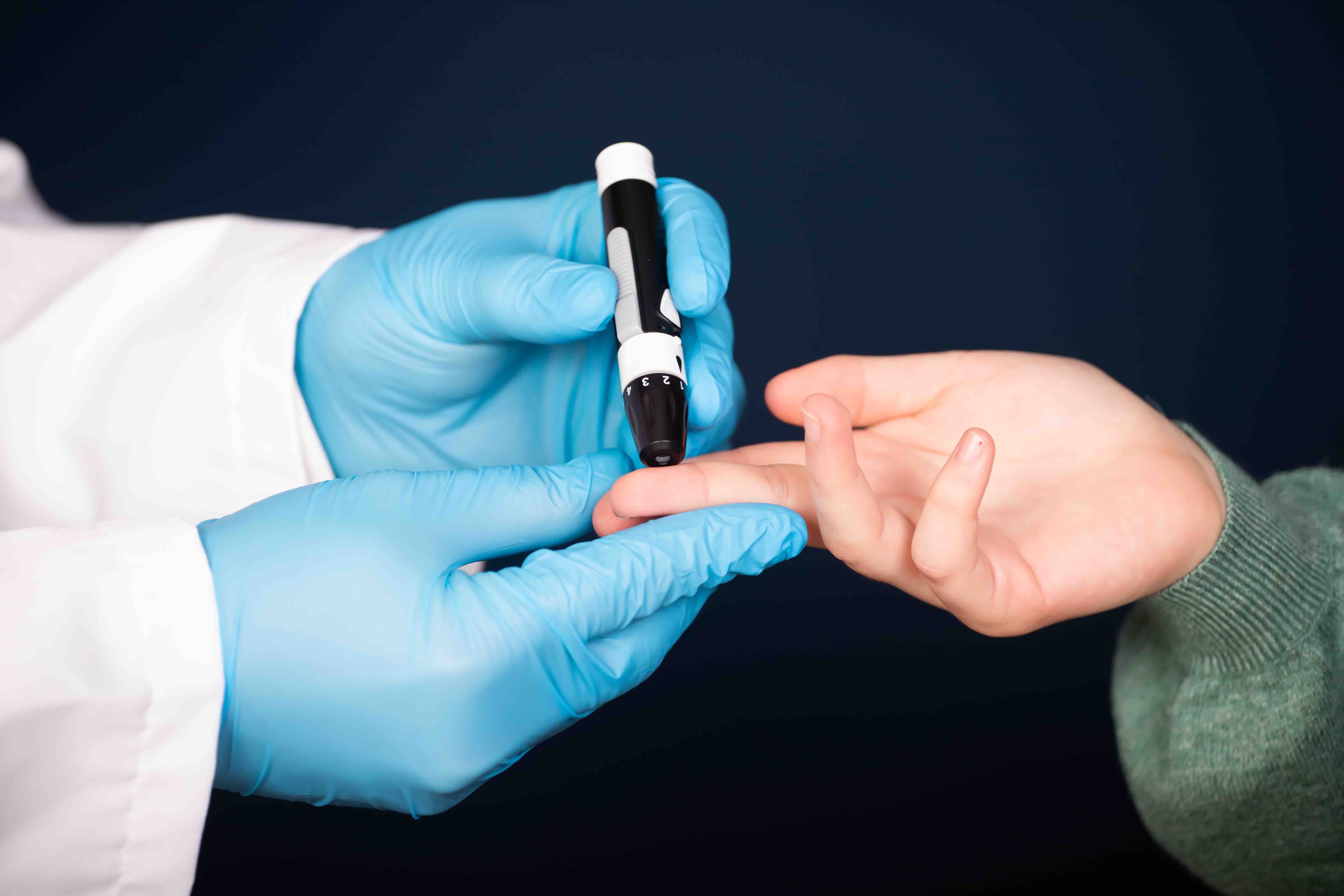- Center on Health Equity & Access
- Clinical
- Health Care Cost
- Health Care Delivery
- Insurance
- Policy
- Technology
- Value-Based Care
Patients With T1D Achieve Insulin Independence With Islet Cell Therapy
Updated findings from a phase 1/2 trial of stem-cell derived islet cell therapy for type 1 diabetes (T1D) showed improved glycemic control and a reduction in insulin dependence.
This article was originally published by CGTLive. It has been lightly edited.
Patients with type 1 diabetes (T1D) treated with the stem-cell derived islet cell therapy VX-880 (Vertex Pharmaceuticals) showed improved blood sugar control, with half achieving insulin independence, according to updated findings from a phase 1/2 trial (NCT04786262).1
The new data were presented at the Annual Meeting of The European Association for the Study of Diabetes (EASD), held October 2-6 in Hamburg, Germany, by professor Trevor Reichman, MD, transplant surgery, Toronto General Hospital, Canada.
Testing blood sugar | Image credit: erika8213 - stock.adobe.com

“These results are truly remarkable and offer hope of a life-changing therapy for people who suffer from the relentless life-long burden of T1D”, Reichman said in a statement.2 “All patients who have been treated with VX-880 have shown improvement across all measures of glucose control, including reduction or even elimination of external insulin use.”
The trial has treated 6 evaluable patients with T1D with severe hypoglycemia and impaired hypoglycemic awareness with over 90 days of follow-up, all of which demonstrated engraftment of the islet cells, endogenous production of insulin, improved glycemic control (less than 7% glycosylated hemoglobin [HbA1c]), and a reduction in insulin dependence. Another participant discontinued not due to adverse events (AEs) and was not evaluable for efficacy.1
Two participants with over a year of follow-up met the primary endpoint of eliminating severe hypoglycemic events as well as a secondary endpoint of insulin independence. In these 2 patients, time-in-range of over 95%.1 One of the patients, who achieved independence at month 9, remains in insulin independence as of month 24; and another, who achieved independence at month 6, maintained independence through month 12 and restarted basal insulin at month 15. A third participant has just achieved insulin independence at 6 months of follow-up, past the data cutoff date.
No serious AEs were related to VX-880 therapy; 2 transient transaminase elevations were related and resolved. Most related AEs were due to immunosuppressive therapy. One participant had a severe hypoglycemic event in the perioperative period which was considered unrelated to VX-880.
VX-880 is an allogeneic, investigational islet cell therapy. Based off the data to date, the phase 1/2 study has advanced to the last of 3 parts and is enrolling at the full target dose.
“The future goal is to create a version of the treatment that does not require immunosuppressive therapy”, Reichman added.2 “The makers of VX-880 are working on encapsulating the cells in a device that would allow New stem cell-derived islet therapy improves them to evade the immune system as well as genetically modifying the cells so they won’t initiate an autoimmune attack.”
References
1. Reichman TW, Ricordi C, Naji A, et al. Glucose-dependent insulin production and insulin independence in type 1 diabetes from stem cell-derived, fully differentiated islet cells: Updated data from the VX-880 clinical study. Presented at: EASD Annual Meeting, October 2-6, 2023.
2. New stem cell-derived islet therapy improves blood sugar control in all treated patients, with three achieving insulin independence. News release. Vertex Pharmaceuticals.
Quality of Life: The Pending Outcome in Idiopathic Pulmonary Fibrosis
February 6th 2026Because evidence gaps in idiopathic pulmonary fibrosis research hinder demonstration of antifibrotic therapies’ impact on patient quality of life (QOL), integrating validated health-related QOL measures into trials is urgently needed.
Read More
